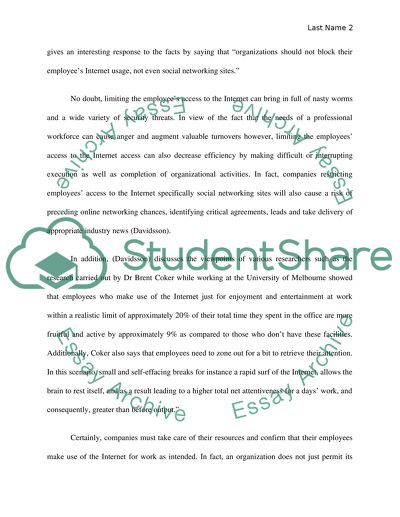Cite this document
(“Employees' Access to the Internet Essay Example | Topics and Well Written Essays - 1250 words”, n.d.)
Employees' Access to the Internet Essay Example | Topics and Well Written Essays - 1250 words. Retrieved from https://studentshare.org/information-technology/1450844-written-assignment
Employees' Access to the Internet Essay Example | Topics and Well Written Essays - 1250 words. Retrieved from https://studentshare.org/information-technology/1450844-written-assignment
(Employees' Access to the Internet Essay Example | Topics and Well Written Essays - 1250 Words)
Employees' Access to the Internet Essay Example | Topics and Well Written Essays - 1250 Words. https://studentshare.org/information-technology/1450844-written-assignment.
Employees' Access to the Internet Essay Example | Topics and Well Written Essays - 1250 Words. https://studentshare.org/information-technology/1450844-written-assignment.
“Employees' Access to the Internet Essay Example | Topics and Well Written Essays - 1250 Words”, n.d. https://studentshare.org/information-technology/1450844-written-assignment.


